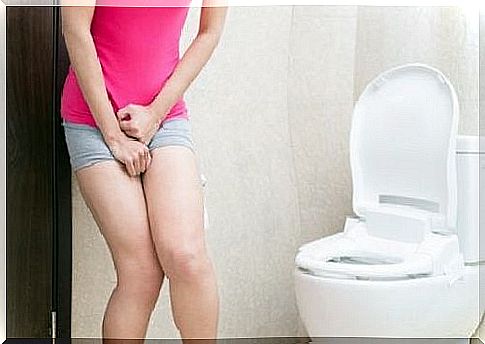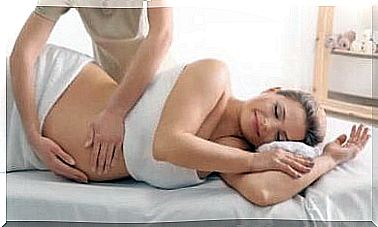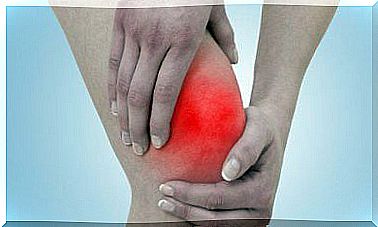Nocturnal Polyuria And Its Treatment

Nocturnal polyuria is a disease that interrupts nighttime sleep due to the urge to urinate. This makes you go to the bathroom more often at night than during the day.
The urge to urinate increases with age. Moreover, it occurs in both men and women. There are several important causes for nocturnal polyuria .
If the patient gets up more than twice a night, this may become a problem. Nocturnal polyuria can begin to negatively affect daily activities, thus affecting a person’s quality of life.
Nocturnal polyuria and its most common causes
There are several different reasons why this problem can occur. First, drinking fluids in the late afternoon. Or, drinking coffee or alcohol after lunch can lead to nocturia.
Urinary tract infections, on the other hand, can also increase the frequency of urination during the night.
Nocturnal polyuria can be caused by high levels of calcium in the blood or by taking medications such as diuretics. There are also other factors that can cause this disease. For example, some of them are:
- Incorrectly or completely untreated diabetes
- Gestational diabetes
- Heart failure
- Swelling of the lower limbs
- Sleep problems or conditions such as sleep apnea
- Taking certain medications
Methods of diagnosing nocturnal polyuria
If you think you have nocturnal polyuria and want to help your doctor make an accurate diagnosis, it’s a good idea to record the times and frequency of your bladder emptying.
For at least two days, you must keep a record of your fluid intake, bathroom visits, urination, medications, potential urinary tract infections, and any associated symptoms.

The doctor will then review the causes and determine the best treatment for each patient. In addition, he or she may order a urine test to examine it more closely and see if there are any additional factors or conditions causing the disease.
Nocturnal polyuria – typical symptoms
The main symptom of this disease is simply insomnia. Typically, you should be able to sleep 6 to 8 hours without going to the bathroom. Patients with nocturnal polyuria interrupt their sleep more than once during the night to urinate. This situation, of course, means disrupting their normal sleep cycle.
Another symptom of this condition is nocturnal polyuria, as well as similar behavior during the day. Your body produces more than 2 liters of urine while you sleep. Daytime polyuria is the same in terms of symptoms but only occurs during the day.
In addition, you may produce more urine at night than your body can store, which means your body will have to excrete it at night.
Can you prevent the occurrence of night polyuria?
The World Health Organization (WHO) recommends a number of preventive measures. Some of them are closely related to the causes of this disease:

- Try to avoid drinking plenty of fluids in the afternoon and evening. Also, avoid alcohol and other stimulants.
- Urinate frequently, especially during the day and just before bedtime.
- Eat plenty of vegetables, fruits, legumes, soybeans and similar foods. Also, try to eat less red meat, saturated fat, salt, sugar and calcium.
- After eating, lie down flat for at least a quarter of an hour.
- Avoid long journeys, constipation-inducing foods, and excessive environmental humidity.
- Exercise regularly.
- Avoid being overweight.
Treatment options for nocturnal polyuria
If you think you may have nocturnal polyuria, you should see a doctor. If necessary, he or she can refer you to a urologist. Treatment will depend on the specific causes of the disease.
Treatment options for this condition may include a variety of treatments or drug treatments. For medications, some steps and solutions to consider include:

- If you are currently on treatment with diuretics, take them no later than 6 hours before going to bed.
- Take a nap in the middle of the afternoon.
- Raise your legs above your head as often as you can.
- Wear compression stockings – in fact, they can help prevent fluid build-up in your lower body.
On the other hand, pharmacological treatment will consist of taking anticholinergic drugs. These drugs can reduce the symptoms of an overactive bladder.
In addition, some diuretics can help regulate your urine output frequency. Finally, other medications such as desmopressin help the kidneys to produce less urine.









